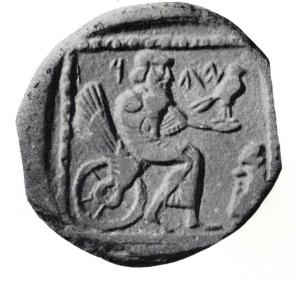
Since the birth of human contemplation, questions about God’s true nature have haunted our rationale. Gradually, we’ve evolved to favour scientific demonstrations, and as a result, the debate between theists vs. atheists has never been as fierce (or rude). However, this article aims to change that, finally proving God’s existence without any room for debate.
I know what you’re thinking. You don’t trust that I can accomplish this feat, primarily because no one has ever achieved such a thing. Ye of little faith! Prepare yourself for some life-changing education! But before I can prove the existence of God, we must first define what we are proving. What exactly is God? Or perhaps, more importantly, what isn’t?
The Problem With the Atheist God
It’s easy to appreciate why many people, especially in the West, have written God off as a nonexistent figure—an imaginary friend for adults. These hasty conclusions are owed to their knowledge of God being agonisingly limited, as they were raised exclusively on Abrahamic timelines. When asked to characterise the word “God”, most non-believers present their understandings through a “Biblical” lens, be it via Judaism, Christianity, or Islam. Some may even extend further to one of the infinite offshoots, including Mormonism, Jehovah’s Witnesses, or Rastafarianism. But the details remain the same: atheists reject God on an extremely narrow scope of understanding.
What’s in a Name?

The etymology of the word “God” has hazy origins but likely comes from the Proto-Indo-European ǵʰu-tó-m, meaning to pour or perhaps invoke. A missionary named Ulfilas coined the “God” development in his Gothic translation of the New Testament, published in the 4th century. However, scholars have noted that the Germanic Lombards referred to Odin, the Norse god, as “Godan“. This connection suggests that both God and Godan probably arrived from identical root origins. Yet tales of Odin predate these Christian texts.
Using this as a launching point, let’s analyse the imagery of the Biblical God. Take, for example, The Creation of Adam in the Sistine Chapel. Isn’t it interesting how Michelangelo has interpreted God? He’s a large male with a long beard dominating the world from the sky. These attributes are strikingly similar to Odin, as well as many others, such as the Greek god Zeus. Suspiciously so.
There is an argument that Christianity adopted the word “God” to ensure an easier transition from pagan traditions. The proposal should come as no surprise. These coaxing methods were nothing new to the Christian faith. Perhaps the most famous case is when the Romans placed Jesus’ birthday on the 25th of December. As the celebration of the solstice, it was a desirable date that every belief system wished to claim as their own. After Christianity dominated the scene, it made sense to refashion the festivities in line with the saviour’s arrival, even though the Bible indicates that Jesus’ birth was closer to autumn rather than winter.
God is Not the Only God

The Judeo-Christian scripture follows Yahweh as the Supreme Being. Only later did Christianity cleverly repurpose the word “God” to represent this same force. But “God” is still used today for the English translation of any generic deity, many of which predate the Bible.
Numerous religions have a plethora of gods under one polytheistic roof. Ancient Egyptians, Shinto, Native Americans; there are multiple cultures who have completely different definitions behind what they consider a “god”. And yet, the majority of atheists are ignorant of these ideas, and when asked to explain why they don’t believe God exists, they will usually tumble back upon those aforementioned Abrahamic descriptions.
Such a lack of education on terminology exposes a gaping hole in their research. It is shameful how these Western non-believers have slammed the door on the vast spiritual philosophies surrounding “God” worldwide.
Hence, my approach to proving the existence of God comes down to just that: the definition of the word beyond the Judeo-Christian notions. Because some of these descriptions most definitely exist. Here are three of my favourites.
“The Universe Doesn’t Exist”

As previously mentioned, The Old Testament is a Jewish teaching, largely the Torah, with a few sneaky edits. But long before these texts, we had the Vedas, the central scripture of Hinduism. This Indian theology is famed for its millions of gods, but above them all sits Brahman, the Highest Universal Principle as the Ultimate Reality.
This is the Supreme Being of Hinduism, their One True “God”, defined as the collection of literally everything. In this way, we have what’s referred to as a pantheistic religion. This philosophy equates the cosmos and its source energy as a singular collaborative system of divinity. Everything you know and everything you don’t know—the stars and the atoms and the space between—are components of this God. Even you!
This ideology has evolved into many other belief systems, especially in the East. A significant example comes from China, called Taoism. Their “God” (for lack of an easier term) is the Tao and can be spoken of interchangeably with these ideas as the underlying principle that governs everything (and nothing). In more New Age circles, you may fall upon the notion of “quantum mysticism“, which regularly ties “God” to the fields of electric charges that buzz within every atom and are responsible for all molecular matter. But perhaps you’re not ready for that conversation.
Regardless, if you say “God Doesn’t Exist” to a Hindu, Taoist, or New Thought Ager, you are saying “The Universe Doesn’t Exist”. Interesting argument, but then what’s all this?
“Nature Doesn’t Exist”

Talk about predating The Bible, many scholars agree that the original religion (existing tens of thousands of years ago) is what they have labelled as Animism. It’s an unfairly large umbrella term encompassing countless cultural faiths across the continents, but they do share common attributes. Notably, it is the belief that everything (plants, water, weather, symbols, rocks, sounds, everything) is alive with a spiritual substance. Such ideas were considered laughable by the “advanced” anthropologists of the era, but then we discovered the electron in 1897. Although, again, this suggestion might be moving too fast for you.
Instead, let’s revisit the pagan conversation. These ancient proposals may have waned but never died. On the contrary, they have only sprung up in popularity over recent decades, with advocates attempting to recapture some of that bygone magic. Small neo- paganismsects have spawned from every old religion, but there are numerous modern interpretations, the most popular of which is Wicca.
Definitions of God (or the Goddess) vary from each movement. They focus on personifications of specific landmarks, elements, or objects, for instance, the moon. But the standard string that ties their God together is the fundamental mechanics of nature. Using concise terminology, it is Nature Worship.
It’s an effortless Higher Power to grasp. The energy from Sun. The hydration from the water. Even when observing our ecosystem, it is obvious something greater is at work. A plant feeds a herbivore feeds the carnivore, which eventually dies and feeds the plants again. This self-sustaining cycle depends on each factor to function, which is a miracle of science if there ever was one.
So if you say “God Doesn’t Exist” to someone who is paganistic in their beliefs, you are saying “Nature Doesn’t Exist”. Such an utterance is provably untrue using that definition of God.
“Logic Doesn’t Exist”

The most hilarious example flashes-back to Ancient Greece. Do you remember Pythagoras and his triangle from school? What you may not know is that the man was also a cult leader who developed his own religious philosophy named Pythagoreanism. As you’d expect, the theology revolves around numerology, essentially teaching that we can read the thoughts of God through mathematics. Considering the geometric patterns found in nature, the proportionate evolution of biology, and the perfect harmonisation of music, it holds a ton of weight.
Mathematics itself is nothing but a numerical representation of logic. You can use the terms “math” and “logic” interchangeably.
So if you say “God Doesn’t Exist” to a Pythagorean, you are saying “Logic Doesn’t Exist”. How absurd! How utterly embarrassing.
“Yahweh Doesn’t Exist”

Circle around and tie it together in a neat little bow. Don’t forget that the Biblical God is not named “God”. He has a name. It’s Yahweh, a Levantine deity with a backstory within a polytheistic canon. Similarly, Allah from the Quran is said to be that same God, even though the historical paper trail does not link up. Regardless, these are “God” to some people but not “God” to everyone. They are merely gods among thousands of alternate gods worldwide, some fantastically mythological, while others are demonstrably applicable to our reality.
When listening to an atheist and theist debating, more often than not, you’ll find them on either side of an Abrahamic coin. But outside of that limited platform, many humans of faith shake their heads at the ridiculousness. To argue with a Yahweh worshipper that their god does not exist merely places you on the other side of the identical spectrum. You are still Abrahamic in your (non)beliefs and look foolish to anyone who understands the cosmos of possibilities beyond that speck of dust clogging the closed mind.
My challenge to you is as follows: if you are an atheist who does not believe in “God” based on the Bible, then say so. “Yahweh Doesn’t Exist” will demonstrate an educated individual aware of other cultures. Because billions of people don’t believe in Yahweh either. But they do believe in God, a Higher Power that, by an array of potential portrayals, predates the Bible itself. Sometimes, as the entire Universe. Sometimes, as nature. And yes, sometimes, even as logic.
This article was based on the Janthopoyism Bible, Chapter 1.1. Does God Exist? It’s available on Amazon now.













